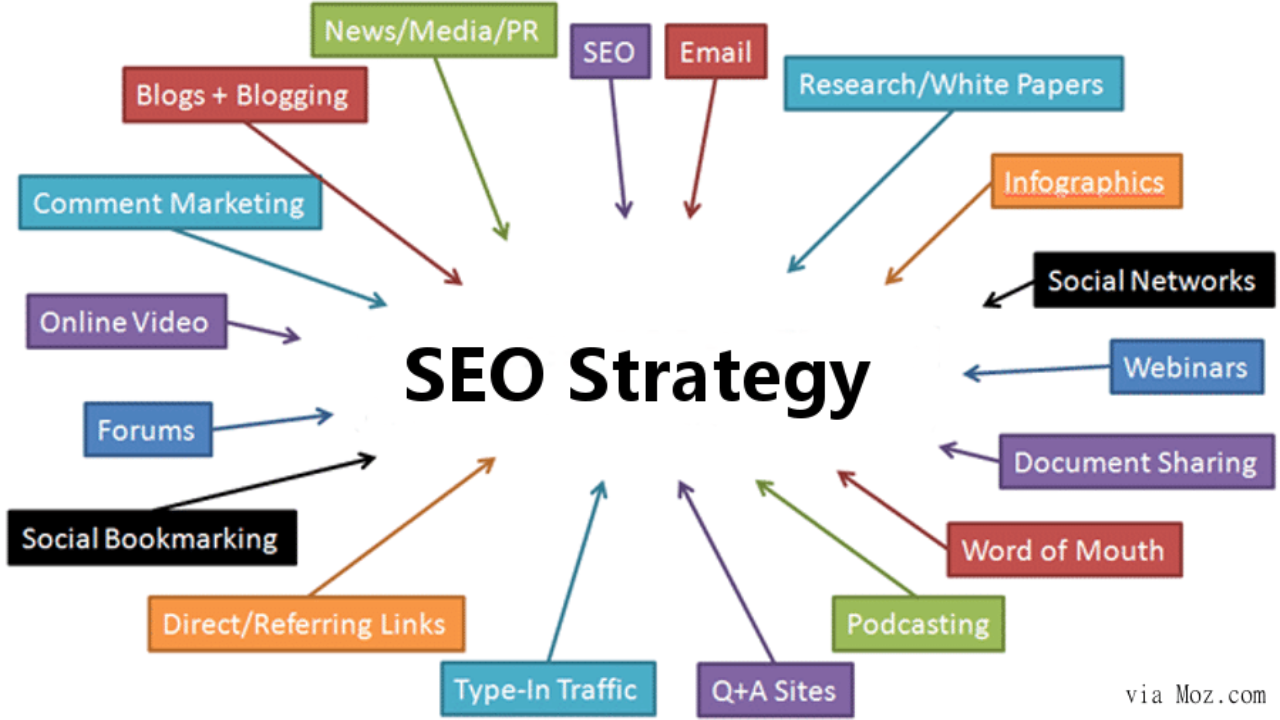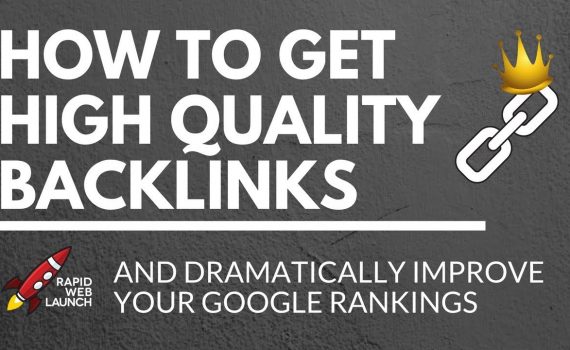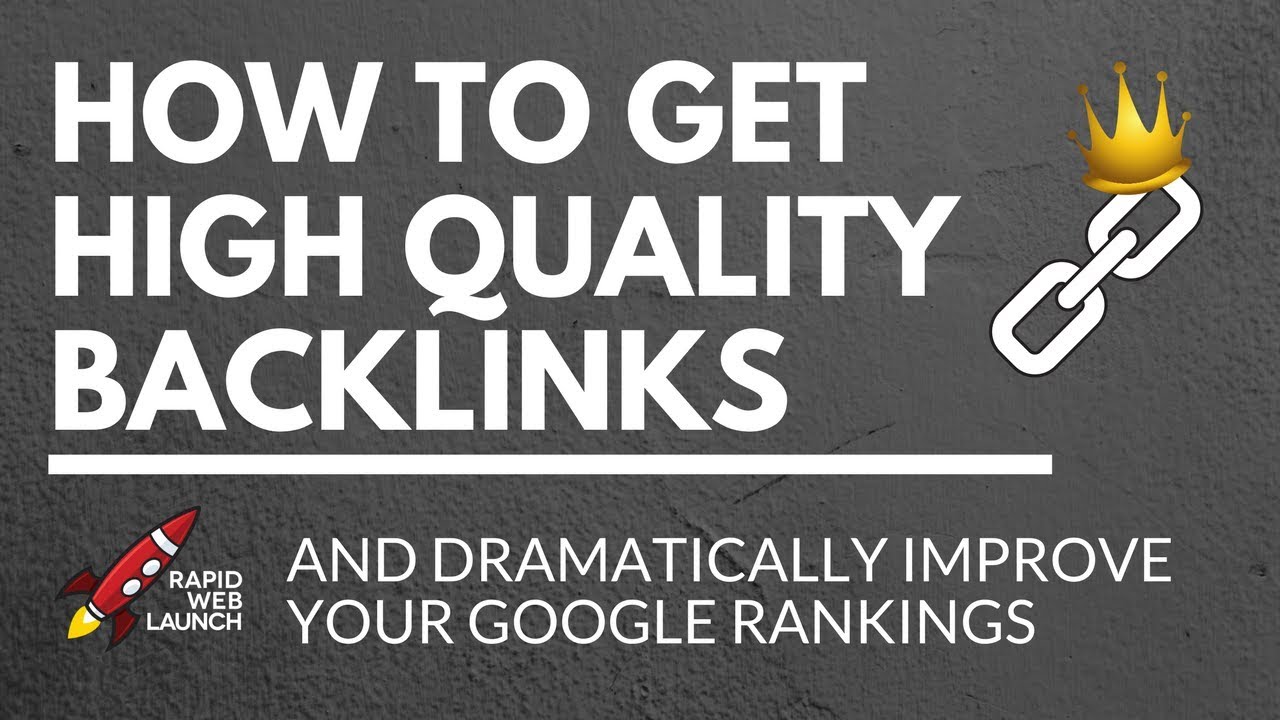
How To Get Top 10 Rankings on Google
Category : Talk To Our SEO Experts
High rankings rarely happen by chance. Even the most skilled and knowledgeable marketers struggle with getting the top-ranking spot. So, how can a regular business owner hope to achieve this feat? While there’s no way to absolutely guarantee high rankings, this post will look at some strategies anyone can use to seriously increase their chances of claiming that #1 spot.
Choose the right keywords
The keyword strategy that you use, however, is important. There are a few things to note when choosing the keywords you want to target:
– Choose your keywords based on your domain authority. If you want immediate visibility in the SERPs but you have a domain authority of 16, you’re going to want to look for the lowest competition keywords you can. Take your pick out of the low comp keywords and look for those that have the highest search potential out of the lot, and start there. You can still create content and pages for higher competition keywords and it can be shared elsewhere, but remember that you might end up on page 6 of the results.
– Keep search intent in mind. As in the story above, if you want results, your content has to match the search intent behind the keyword. Someone searching for “social media agency” likely isn’t going to want “10 tips to decide if starting a social media agency is for you!” They want to find someone to hire. If your content doesn’t line up with the estimated search intent, it won’t matter how well you rank.
– Use diverse keywords. Shake things up. Go for both long-tail and short-tail keywords. This will help you extend your reach and it will make it easier to target users in all stages of the buying process and funnel, which is important for marketers to accomplish.
As you develop your keyword strategy, you’ll want to do a fair amount of research. Tools like Google’s Keyword Planner are a great way to identify relevant keywords with good search volume. It can be a complicated puzzle, but it’s one you’ll need to solve to make the most of your keyword strategy.
Optimize Your Site
If you’re looking for a direct way to improve your odds of ranking well on the Google SERP, you may want to look into cleaning up the back end of your website.
The first place to start is your site speed. These days, we all expect instantaneous gratification. We want our food to be ready fast, groceries (and pretty much everything else) delivered to our door, packages to arrive in two days (or less)…and web pages to load in less than a second.
Optimize each piece of content for your keywords.
Once you’ve “gone niche” and have chosen some easier keywords, it’s time to use those keywords in strategic places on your page. While you certainly don’t want to overuse your keywords, it is important to use them in a variety of ways within your content. Most importantly, focus on using them in your:
– URL: For instance, instead of www.yoursite.com/sh8xks6.htm, use www.yoursite.com/your-keywords-here.
– Title tag.
– Headings: H1, H2, etc.
– Alt image tag and image captions, where appropriate.
– Throughout your content.
Keep in mind that Google (and your readers) favor comprehensive content that does a great job of covering the topic at hand. So, while it’s important to use your keywords somewhere in your content, that’s no substitute for writing longer, more in-depth content that really does justice to the topic.

Ways to Get Top 10 Rankings
Update Your Content Regularly
You’ve probably noticed that we feel pretty strongly about content. Search engines do, too. Regularly updated content is viewed as one of the best indicators of a site’s relevancy, so be sure to keep it fresh. Audit your content on a set schedule (semesterly for example) and make updates as needed.
If you want to get top rankings in Google, you absolutely must be adding new content to your site regularly. But don’t just add content for content’s sake; add useful, high-quality content that actually provides value to your customers and prospects.
This content will help you boost your rankings in two primary ways. First, more content means more keywords, and therefore more opportunities for Google to return your site in the search results. Second, the more content you have, the more links you generally accumulate. Plus, having lots of content is great for getting visitors to stay on your site longer. Win-win!
Get More Quality Backlinks
As mentioned above, backlinks are a key part of how Google determines the value of your content. The idea here is very simple: when a website or webpage provides valuable content, other websites will naturally want to link to that content.
The only problem is, most people don’t dig very far to find good content. They usually look at the first few search results on a page, identify a good source and link to it.
As a result, content that ranks well tends to get more backlinks. Content that doesn’t rank well tends to fall further and further into obscurity.
So how do you get around this problem?
Well, one of the best ways to increase backlinks to your site is through content marketing. The more high-value content you create, the more likely people are to find it and link to it.
This is part of the reason why blogs are so popular for businesses. It gives them a great platform for publishing content and helps them build an audience that loves their business (and hopefully backlinks to their site).
Another way to use content marketing is to create lead magnets. These are usually high-value pieces of content like case studies or white papers that provide unique insight. Since those resources are specific to your business, when people want to use your data in their own content, they’ll usually link back to it.
Improve Site Usability
Site usability is another important ranking factor, according to the Backlinko report cited earlier. If you’ve managed to get to the top three search engine ranking, it’s likely that you’re already aware of this fact. People visiting your website should be able to have an experience that makes them want to stay.
This means your pages should load quickly and completely. And your visitors should be able to navigate effortlessly across your site. The goal is to make sure they stay for a while instead of just bouncing, because a high bounce rate could pull you down in ranking.
You can always use the Google PageSpeed Insights to keep track of how your site is performing in terms of load speed. In addition to analyzing your page speed, this tool also gives you recommendations on how you can optimize the load speed further.
Related post Top smart ways to improve Google ranking















-
Tips to build blog comment backlinks to boost rankings
Tags : Blog comment link buildingLink building strategiesLink building tips
Category : Link building
There are plenty of reasons to keep commenting on blogs—as long as you’re doing it in the right way and with the right goals.
So, what’s blog commenting SEO good for today?
From finding high-quality sites and engaging with commenters like a pro, here’s my best blog commenting tips:
– Find high-quality websites to comment. When I say high-quality, I’m looking for websites with a domain authority of 60+.
– After you pull your list of top websites, search for an article most relevant to your target audience.
– Now, you can begin to add value with your comments. I follow the “sandwich affect” when I comment on an article.
Acknowledge the author by name and add a compliment.
– Sprinkle in valuable information you took from the article, while adding additional data that may spruce up the article.’
– If you add a link, it needs to be relevant and add value to the post or discussion.
– Again, acknowledge the author by name and end with a compliment.
– Remember to keep your blog comment short and sweet. I aim to keep mine under 100 words.
Finally, and most importantly, when it comes to blog commenting, you should follow one crucial rule, no matter what:
Make your comment valuable to the post and the discussion.
A comment that has nothing to do with the post itself, no matter how long and intelligent it sounds, won’t help you one bit.
You have to actually read the post and make your comment a response to the post, or a response to another commenter’s comment.
Be a valuable commenter, not a comment spammer!
blog comment backlinks
Steps to Successful Blog Commenting SEO
Get personal
If you want people to go from your comment to your website, it’s important that they know who you are!
If you just leave your first name, people probably won’t connect you to your brand.
So, make sure to put your full name and the name of your brand. If you want people to recognize your company name right off the bat, you might put something like “Amy Copadis from MyCompany.”
And what about a photo?
First, make sure that you use an email that’s attached to a Gravatar account.
Second, make sure your Gravatar account has a recent picture of you to display!
If you want people to see your company or brand, you may want to place your brand logo as a Gravatar image. Generally, however, it’s better to have a picture of a real person—that helps you look more authentic and less spammy.
Don’t comment to get backlinks only
I see many bloggers making this very mistakes of thinking blog commenting is all about building links for SEO purpose. You’re dead wrong if you’re still thinking this way.
First, take away such mindset and frame your mind in the right direction of what blog commenting is all about. The quicker you understand and agree to this simple but complex rule, the better you’ll make the most out of your commenting efforts.
Blog commenting is an easy way to fall into Google’s link building scheme penalty if you’re mainly doing it for SEO purposes. If your primary aim is to run a marathon of leaving xxx numbers of comments a day on blog posts, then you will probably fall under the hammer.
When a huge number of links pointing towards your site are from blog commenting other than editorial votes then you’re automatically inviting one of the animals (Panda, Hummingbird, and Penguin) in the Google zoo to come dine with you.
Do your blog commenting naturally and don’t make it a mandatory task to leave certain amount of comment every xxx days, weeks or month.
Say something worthwhile and relevant
If you’re commenting on popular, authority websites (which is highly recommended), you’ll be one in a sea of comments that follow.
So, how are you going to stand out?
First, you need to make sure you’re on topic.
So start by reading the blog post thoroughly. Know what’s inside, and the direction that the author took with the information he presented.
Second, you need something valuable to say.
We said above that writing blog comments is not a quick backlink scheme anymore. So don’t view it like that. Invest some time in responding well to the blog content, and add valuable information that wasn’t in the original post.
This will make both the author and the readers see your blog comment as a valuable contribution, thus seeing you (or your brand) as valuable as well.
Wait for the right moment to add your links
Hopefully, you’ve already linked your name out to the exact place where you want people to land on your website.
However, in certain places, it might be appropriate to leave a link to a relevant article or post on your website.
For example, let’s say you’re commenting on a post about email marketing strategies. In your comment, you might expand on an idea that was mentioned in the article, then refer back to a post on your own website for more detailed information, or maybe a case study that you did.
Including these kinds of relevant, valuable links will increase the likelihood that someone will make it to your website.
Use Your Real Name
If you ever run a blog, you will know how frustrating this one could be when you see things like, “John SEO Traffic”, “Five star hotel In Canada”, etc as the name of comment authors.
No matter how relevant or remarkable your comments may appear to the blog owner, it will surely ended up mark as spam or possibly in the trash folder.
No Anchor text in comment
Except that you’re very sure of your relationship with the blog owner and the anchor text in question is for educational purpose only; no other reason for including a link to other sites in your comment.
You will be perceive as spammer and this could lead to Akismet and other spam fighters tools to always mark your comments as spam.
Wrapping it up
These blog commenting best practices will help you mostly get the best out of your effective regular blog commenting efforts if you take them seriously, and some of the points listed on this list needs to be work on long enough to see the required results you want – targeted website traffic that engage with your content, relationship building, networking etc.
Related post: How to find out quality backlinks?
_______________________________________________________________________________
Please contact us for seo service packages at TDHSEO.COM.
TDHSEO Team
Email: tdhseo@gmail.com
Skype: tdhseo
https://www.facebook.com/tdhseo
Thank you!